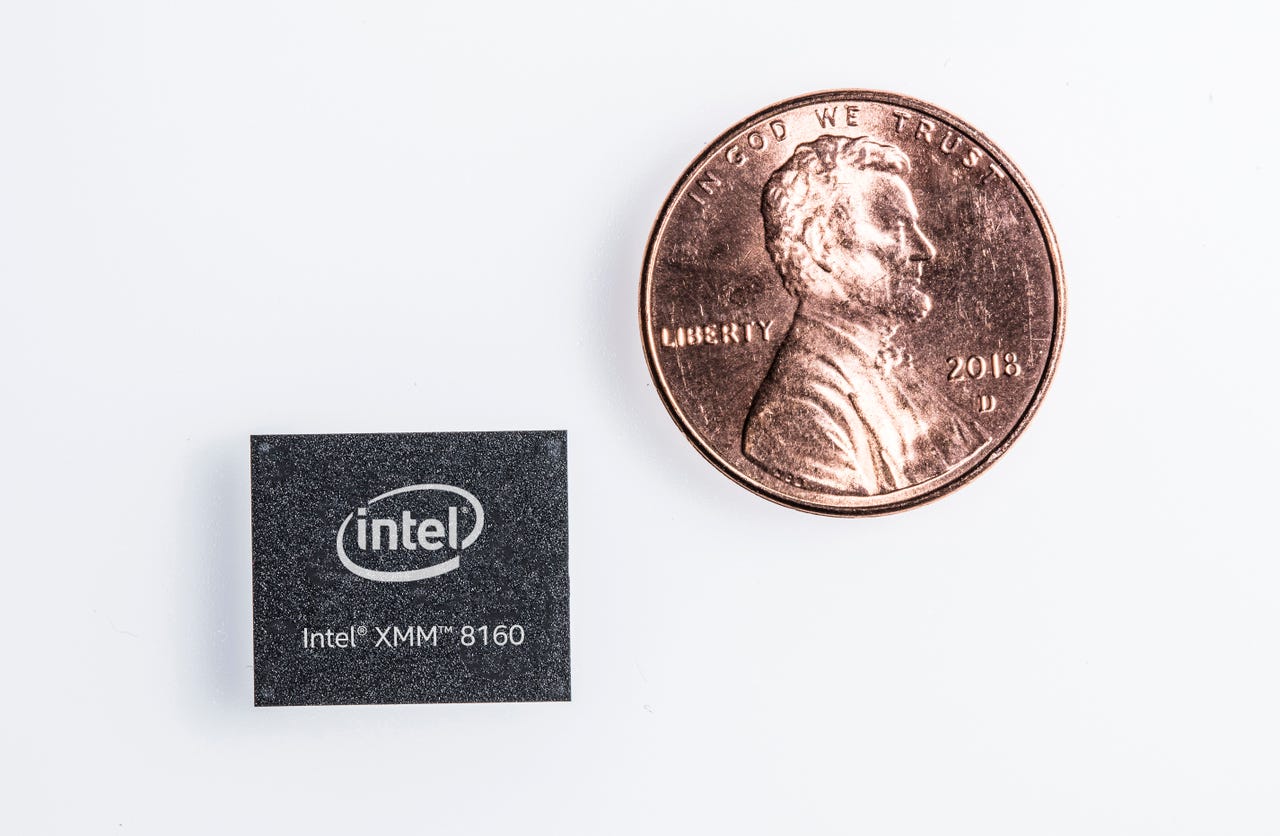Intel announces 5G modem for 2019


Intel has announced the XMM 8160 5G multimode modem, making the product available six months earlier than initially planned in order to support deployments of 5G mobile networks globally.
The modem will provide 5G connectivity to smartphones, PCs, and broadband access gateways, with Intel saying it will provide peak speeds of up to 6Gbps when it launches in the second half of 2019.
The modem will support standalone and non-standalone 5G NR deployments, as well 4G LTE, 3G, and 2G in a single chipset, and supports millimetre-wave (mmWave) spectrum as well as frequencies between 600MHz and 6GHz to support carriers worldwide.
"The Intel XMM 8160 5G modem will enable device manufacturers to design smaller and more power-efficient devices. This can be achieved without the added complexity, power management, and form factor adjustments of two separate modems for 5G and legacy connectivity, as will be introduced in early competing 5G modems," Intel explained.
"By advancing directly to a multimode solution, Intel will offer very clear improvements in power, size, and scalability."
According to Intel, devices that use the XMM 8160 5G modem will become available in the first half of 2020.
"We are seeing great demand for the advanced feature set of the XMM 8160, such that we made a strategic decision to pull in the launch of this modem by half a year to deliver a leading 5G solution," corporate vice president and GM of Intel's Communication and Devices Group Dr Cormac Conroy said.
Read also: Intel at MWC: How 5G will change the PC
Intel had in September revealed that its technology will be used by both Nokia and Ericsson in the first series of 5G deployments globally.
"Intel is powering the first wave of 5G networks," Intel SVP of 5G and Network Platform Group Sandra Rivera said.
"Starting with our 5G New Radio modems, we're building a portfolio of capabilities that lend an additional foundation to the hundreds of millions of modem devices that we have shipped to the market for 4G networks."
Nokia told ZDNet that there have been three main areas of collaboration between Intel and Nokia: Its AirFrame, AirScale, and ReefShark products.
"On the technical aspect, we're looking at the AirFrame platform that Nokia has, which is the basis for our cloud core infrastructure, the edge cloud ... the second area we were talking about is the AirScale, which is our radio access family; it's the same family that we use for 2G, 3G, 4G, and now 5G so it's like a multi-radio access technology," Nokia told ZDNet.
"We have developed with Intel's support on the manufacturing side the system on a chip chipsets that go into that, because you need to develop these things with silicon rather than components in order to reach the power consumption levels, and that ReefShark chipset family is one that they've been heavily involved with."
Lastly, Intel enabled Nokia to undertake trials with customers by opening up its 5G Mobile Trial Platform, Nokia said.
According to Ericsson head of Networks Portfolio Management, Product Area Networks Jawad Manssour, Intel and Ericsson have collaborated on 5G for carriers across the globe, including T-Mobile, Sprint, AT&T, Verizon, Deutsche Telekom, Vodafone Group, BT, Telia, Swisscom, Telefonica, Lifecell, Etisalat, MTN, Turkcell, Ooredoo, Orange, China Mobile, China Unicom, SoftBank, NTT DoCoMo, KDDI, Chungwa Telecom, Far EasTone, and Telstra.
"We've been collaborating for quite a few years since the early 2000s, and for 5G we've been collaborating since four years back," Manssour said.
"It's a really comprehensive collaboration, so it started by ... predicting how the standards would look like, and this enabled us to start very early on to develop systems for trial activities."
One such collaboration was during the Winter Olympic Games earlier in 2018.
At the end of September, Intel also announced a series of new 5G developments in China alongside Huawei, ZTE, Tencent, China Mobile, China Telecom, China Unicom, Baidu, and Unisoc.
As part of the swathe of announcements this week, Unisoc CTO Xiaoxin Qiu said his company will be using Intel's 5G modems in mid-tier Android smartphones globally.
Related Coverage
- Why Apple's 5G, Intel-powered 2020 iPhone would be huge for professionals (TechRepublic)
- MWCA: Verizon 5G Home coming to more cities
- Faster downloads and low latency from 5G will save hours of download time compared to 4G (TechRepublic)
- A peek behind AT&T's 5G debut and $700 million spent in Kentucky (TechRepublic)
- Mobile device security: A guide for business leaders